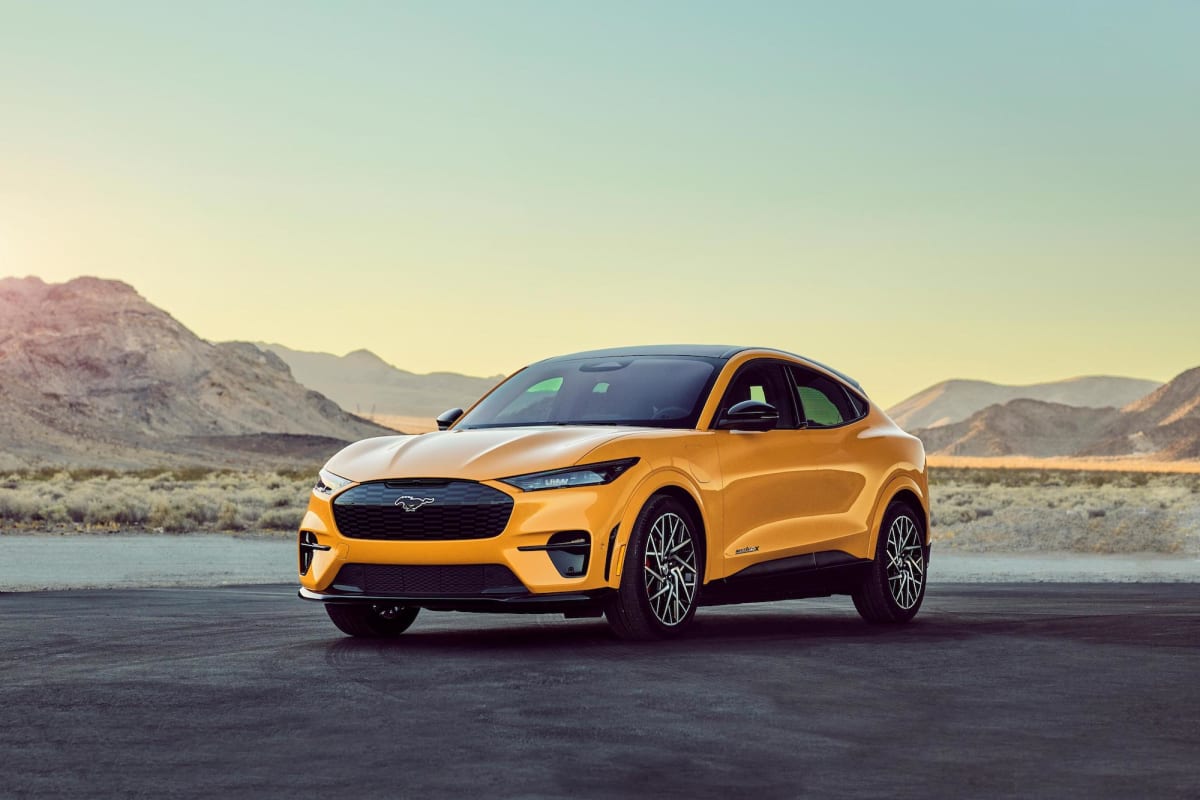
Ford is ramping up its efforts to become one of the biggest players in electric vehicles.
Like champions preparing for the most important competitions of their careers, the Blue Oval has meticulously crafted its plans. Every detail counts. A mistake can be costly because it can give competitors an advantage -- or create an obstacle that can delays design and production.
Ford's strategy started with a split in two.
Ford Model e operates like a tech startup. It currently has three models: the Ford Mustang Mach-E crossover/SUV, the F-150 Lightning pickup/truck and the e-Transit van. Each is targeted at a distinct customer base and -- hugely important -- all three vehicles are in market segments with lucrative profit margins. Other models will be added to these three in the next few years.
Ford wants to produce EVs at annual rates of 600,000 by late 2023 and more than 2 million by 2026.
The other division is Ford Blue, producing the traditional gasoline cars.
Dealers Say Yes to EVs
Another important point in Ford's preparation for the big game is its sales planning.
To be efficient and share certain costs, the car manufacturer has taken advantage of the electric revolution to reinvent its links with dealerships.
Last September, Ford unveiled plans to ask its almost 3,000 dealers to invest either $500,000 or $1.2 million to install upgrades and become EV-certified.
Dealers who choose the higher tier will be on the hook for $900,000 of up-front costs, but they'll also receive elite certification and will be allocated more EVs.
"We’re betting on the dealers. We’re not going to go direct. But we need to specialize,” Chief Executive Jim Farley said at the time after briefing dealers.
"The main message I have for the dealers, which I’ve never said before, because I didn’t believe it was true, is that you could be the most valuable franchise in our industry.”
The money will go toward training, back-of-the-house charging infrastructure, e-commerce upgrades, remote delivery and pickup options, and upgrades toward the customers' digital experience.
Fully 90% of the money will go toward charging infrastructure.
Dealers had until Oct. 31 to decide what they wanted to do.
The results are in: Almost two-thirds of Ford dealerships have decided to sell the company's electric vehicles, which is hugely good news for Ford.
About 1,920 out of 3,000 Ford dealerships agreed to sell EVs, Farley said during an Automotive News conference on Dec. 5. That's two out of three Ford dealerships. Even better: 1.659 of the 1,920 dealers, or more than 84%, opted for the higher level of investment for EVs.
“We think that the EV adoption in the U.S. will take time, so we wanted to give dealers a chance to come back,” Farley said.
Dealers have until the end of the year to start making their investments.
Direct-to-Consumer
The Blue Oval also gave its dealers the option not to invest in battery-powered vehicles and simply to continue selling only gasoline cars. A decision not to sell EVs today, however, does not prevent a dealer from changing its mind when Ford reopens discussions in 2027.
The first wave of Model e dealer exclusivity will start on Jan. 1, 2024, and run through Dec. 31, 2026. After that, a second window opens. Dealers saying no to EVs today will then be able to catch up.
Dealer buy-in to Ford's stated ambitions and priorities is a victory for Farley and a credit to its vision and strategy from those who deal with customers.
Ford has done the exact opposite of General Motors (GM), which does not give all its dealers a choice. GM notably offers buyouts to Buick and Cadillac dealers who do not want to sell EVs.
Farley reiterated, however, that the model of selling vehicles directly to customers via an online platform would save Ford money. He wants the dealers to reduce selling and distribution costs by $2,000 per vehicle in order to compete with the direct-to-consumer model that Tesla utilizes successfully.
So dealers have until year-end to figure out whether they want to be in business with Ford going forward.
One of Tesla's advantages over its rivals is that the disruptor is not bound by franchise agreements, even if this means that it is absent in certain states. The system enables Tesla (TSLA) to deliver its vehicles to customers as soon as they are ready and to avoid additional dealer-related costs.







